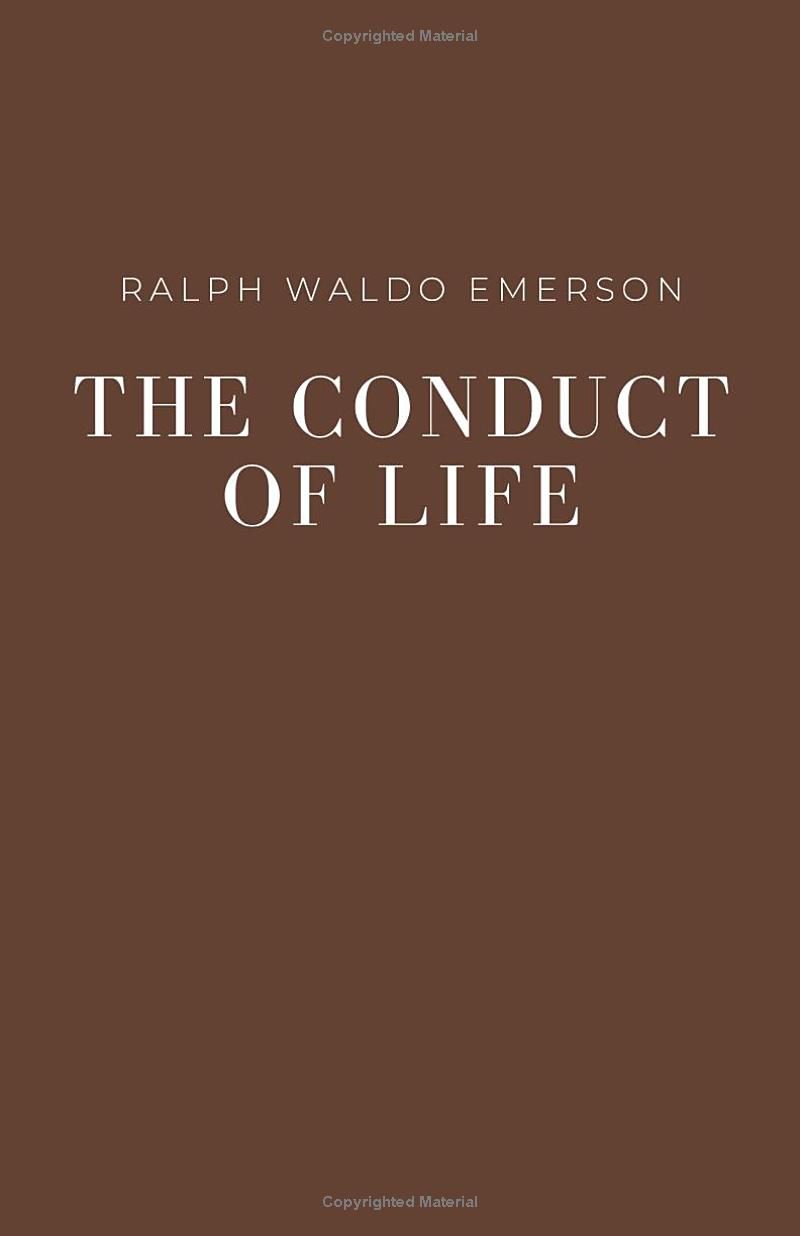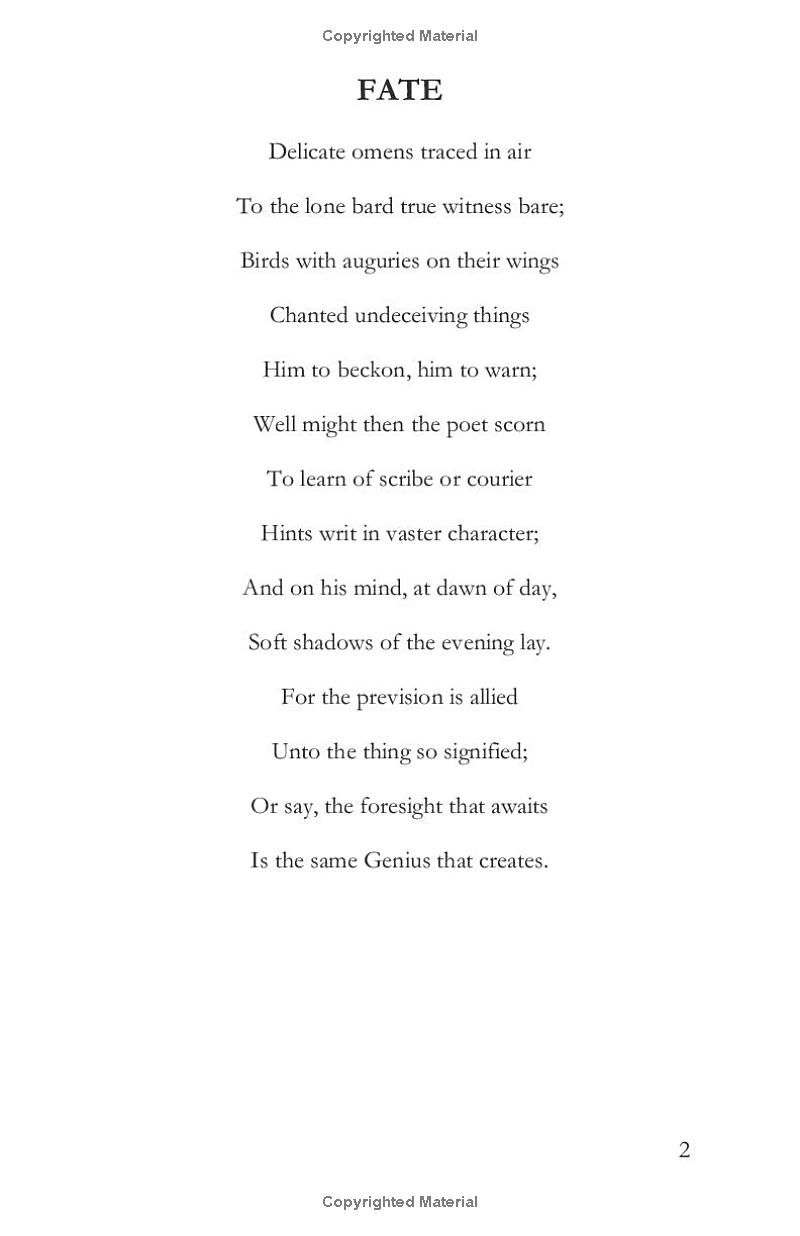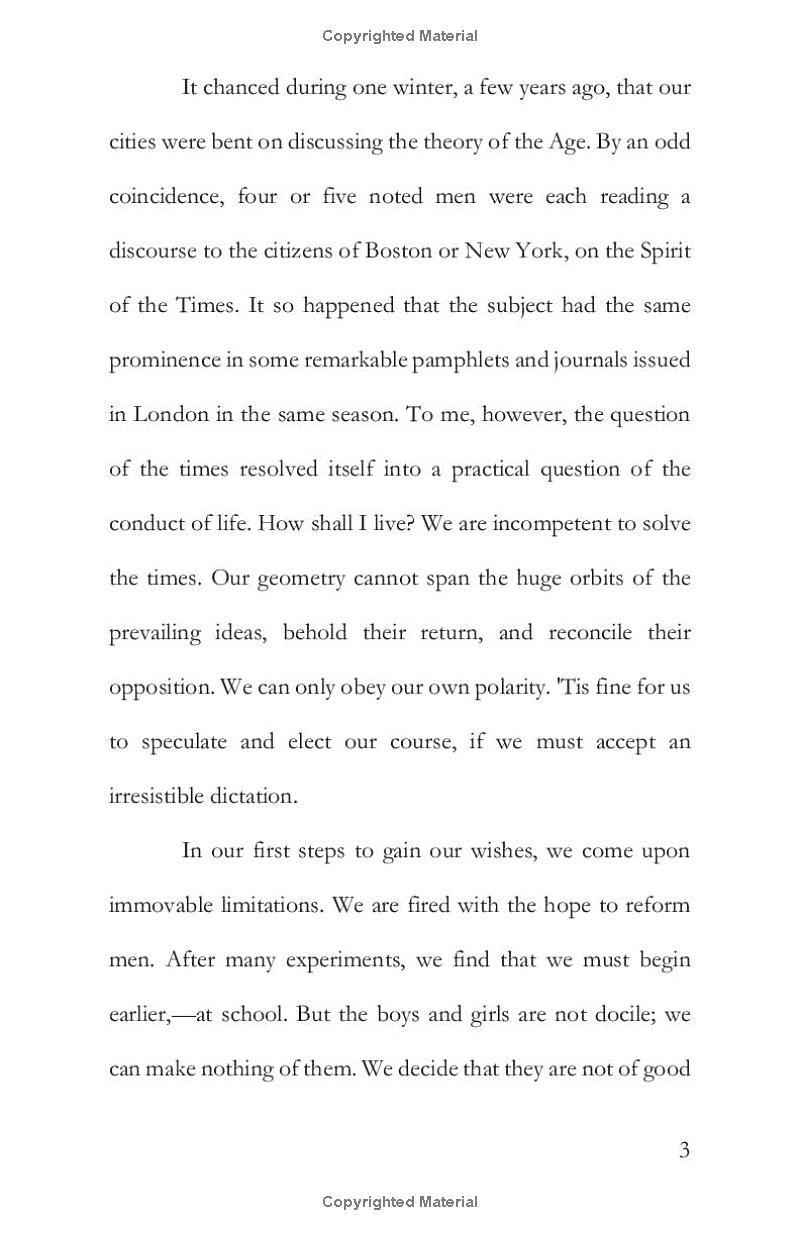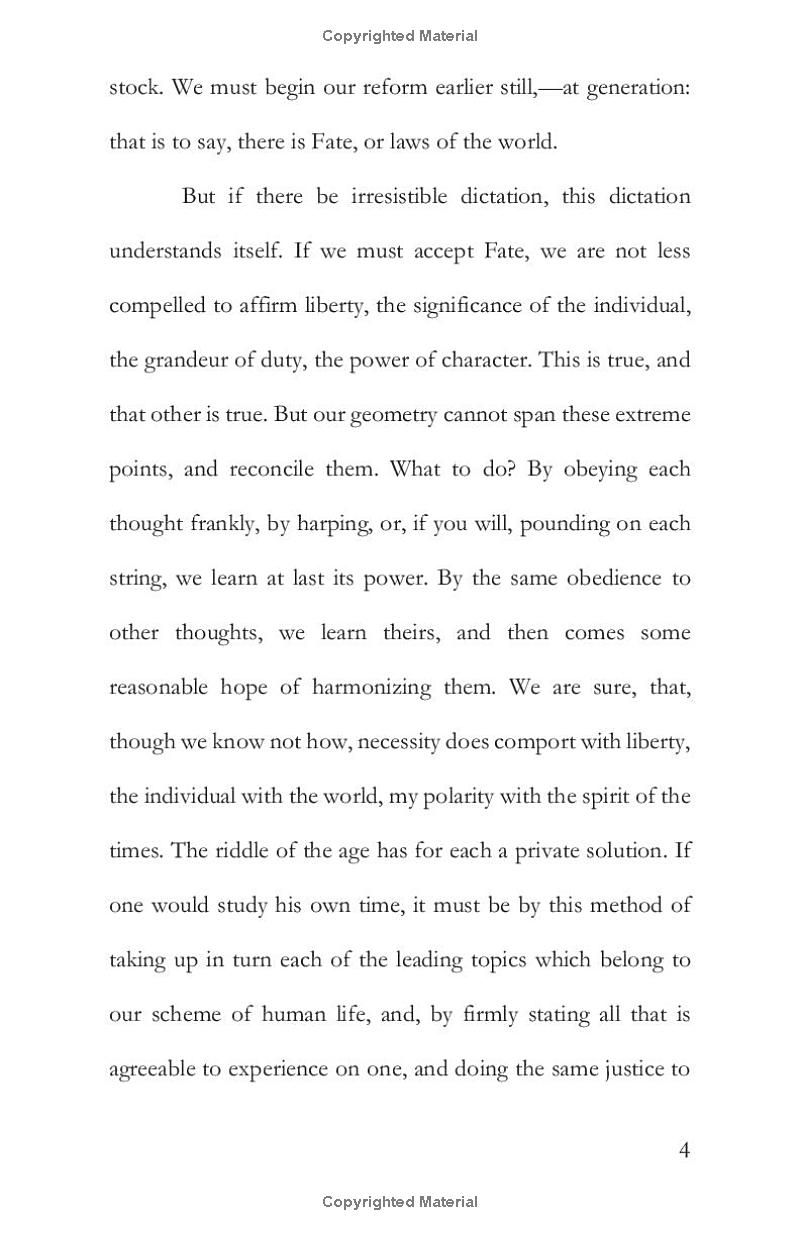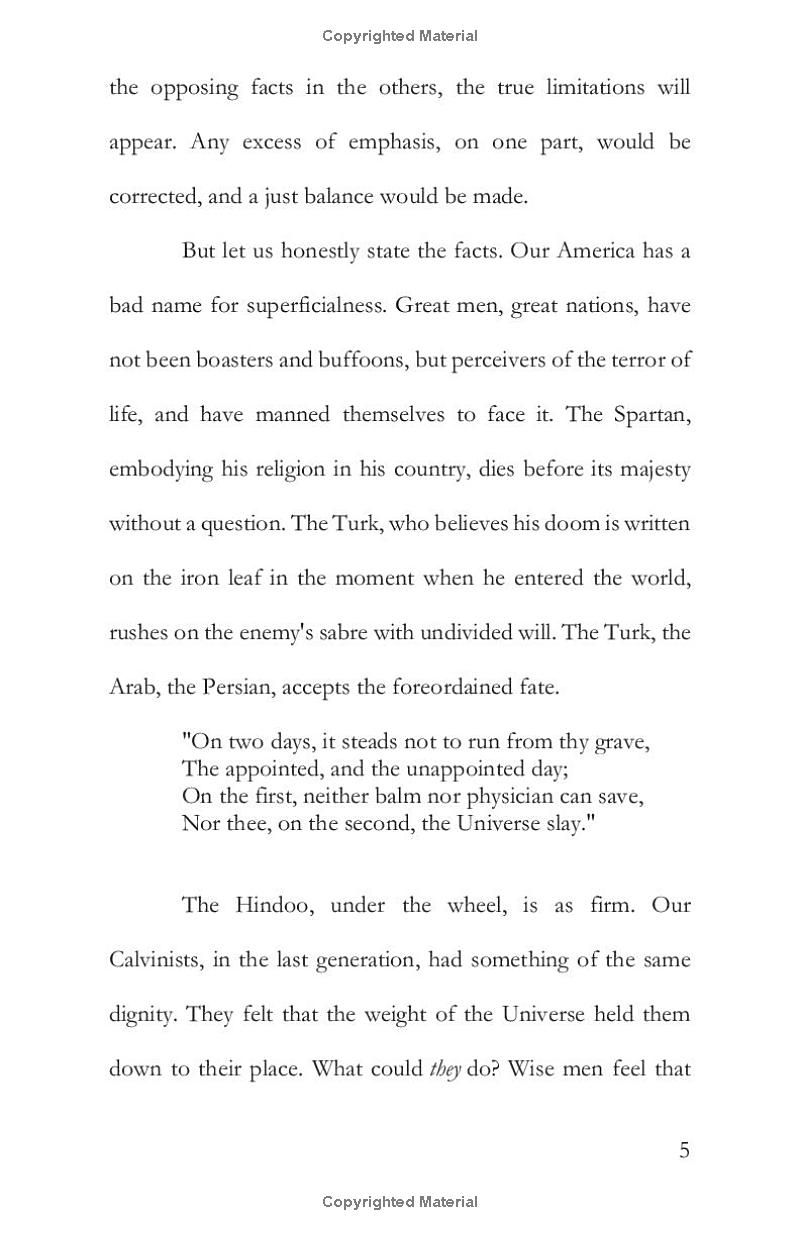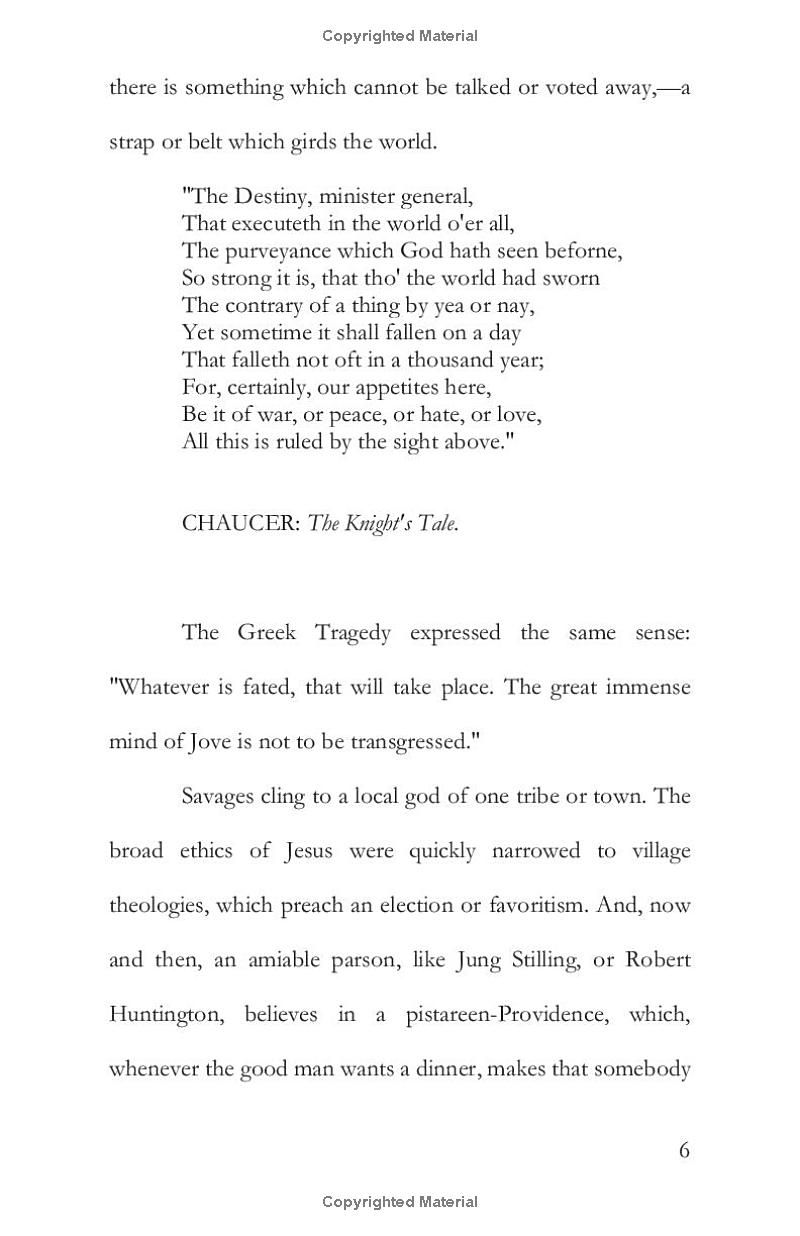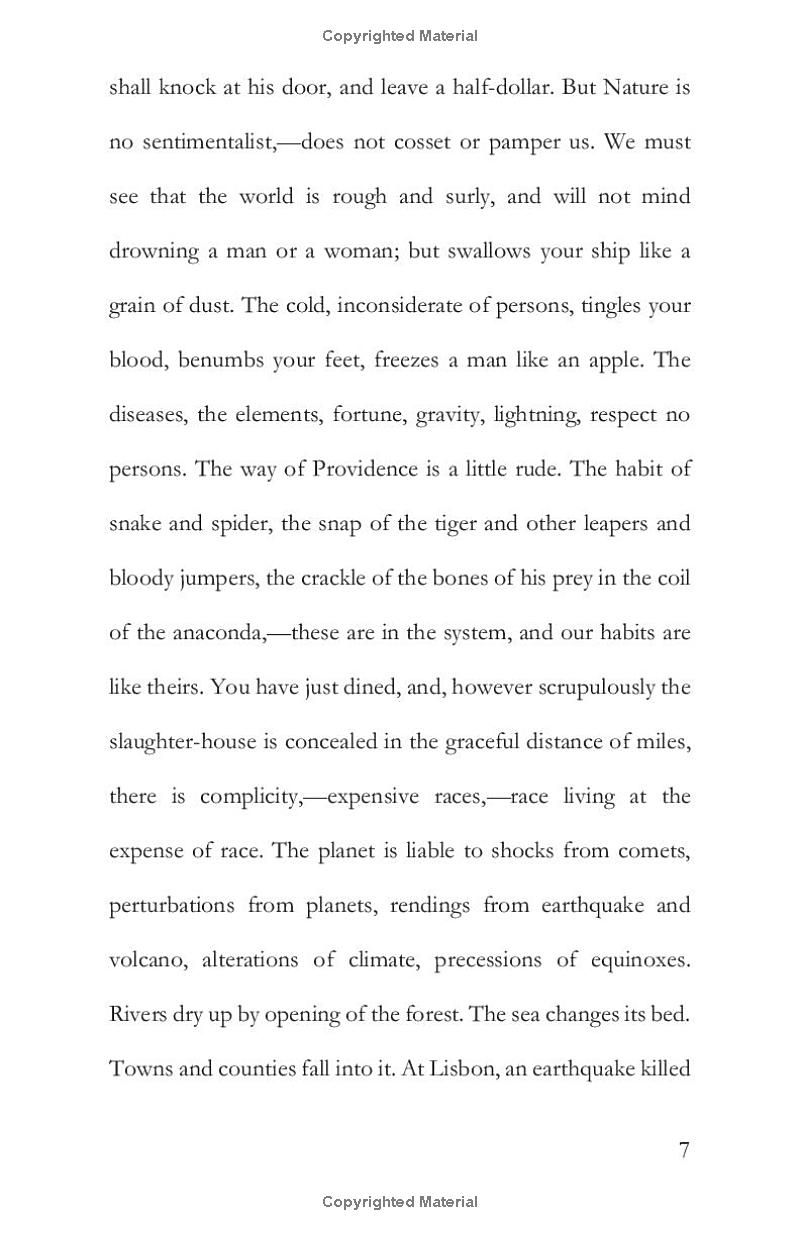Ralph Waldo Emerson's The Conduct of Life is a seminal work exploring the complexities of living a meaningful existence. This collection of essays delves into fundamental human experiences: fate, power, wealth, and the interplay between individual ambition and societal responsibility. Emerson, through insightful prose and philosophical reflection, guides readers towards self-reliance and a deeper understanding of universal truths. He champions ethical living and the pursuit of wisdom, emphasizing the transformative power of resilience in overcoming life's challenges. The Conduct of Life is an enduring testament to the human spirit's capacity for growth and its potential for positive contribution to the world.

Review The Conduct of Life
Reading Ralph Waldo Emerson's The Conduct of Life is like embarking on a thoughtful conversation with a wise, insightful friend who's seen a lot of life. It's not a breezy beach read; it's a book that demands your attention, rewarding slow, careful consideration of its profound ideas. Emerson doesn't shy away from weighty themes – fate, power, wealth, culture, and the very conduct of our lives – and tackles them with a poetic grace and philosophical depth that's both challenging and immensely satisfying.
What struck me most is the timelessness of Emerson's wisdom. While written in the 19th century, the core principles he explores – self-reliance, the pursuit of truth, the importance of aligning our actions with our values – remain incredibly relevant today. He doesn't offer easy answers, but rather encourages us to grapple with these fundamental questions ourselves, to discover our own paths toward a meaningful existence. He gently nudges us to examine our motivations, to question societal norms, and to cultivate inner strength to navigate life's inevitable challenges.
Some readers have noted that certain aspects of the book, reflecting the social context of its time, might feel outdated or even jarring to a modern audience. There are moments where Emerson's views on class and gender, for example, might raise eyebrows. However, it’s crucial to remember the historical context. To dismiss the entire work based on these passages would be to miss the enduring value of his core message. Considering the book within its historical framework allows for a more nuanced and richer understanding, appreciating it as a snapshot of a particular time and place while simultaneously recognizing its lasting wisdom.
The essays themselves are beautifully written, a blend of philosophical insight and lyrical prose. Emerson's style is engaging, often employing metaphors and analogies that illuminate his points with unexpected clarity. While some readers might find his prose occasionally dense or overly elaborate, I found it to be a rewarding challenge, each carefully chosen word contributing to the overall impact. It's a book that stays with you, prompting reflection long after you've turned the final page.
Ultimately, The Conduct of Life is more than just a book; it's a guide, a companion on the journey of self-discovery. It's a book that can help you sort through the daily anxieties and distractions, helping you connect with your inner resources and find a sense of purpose. While it requires effort and patience, the rewards – a deeper understanding of yourself and the world around you – are immeasurable. It’s a book I will return to time and again, finding new layers of meaning with each rereading. It's a true testament to Emerson's enduring genius and a valuable addition to anyone's philosophical library.
Information
- Dimensions: 5.5 x 0.78 x 8.5 inches
- Language: English
- Print length: 346
- Publication date: 2024
Preview Book
